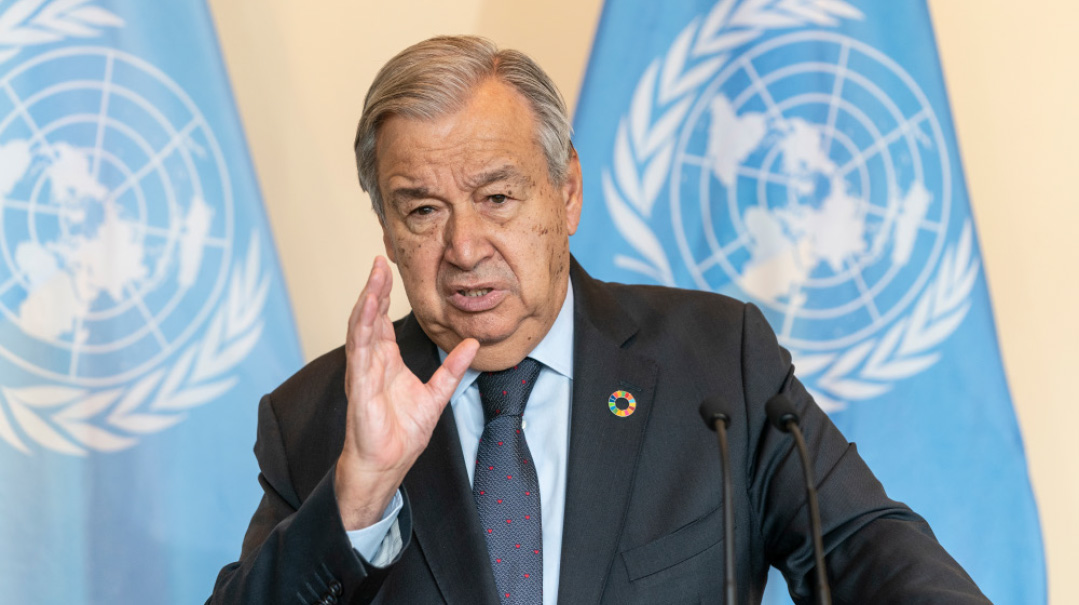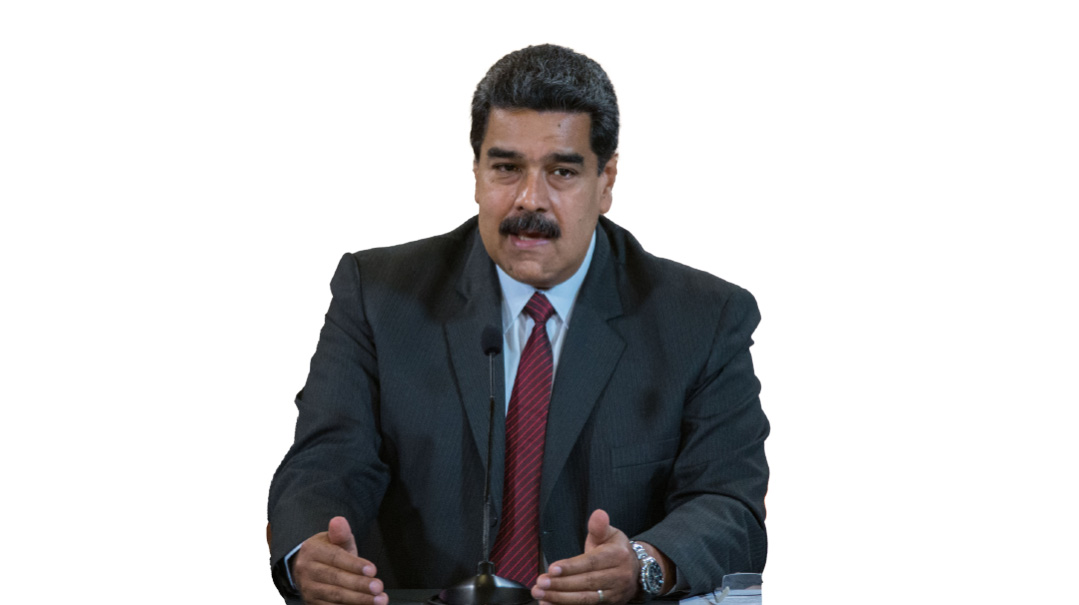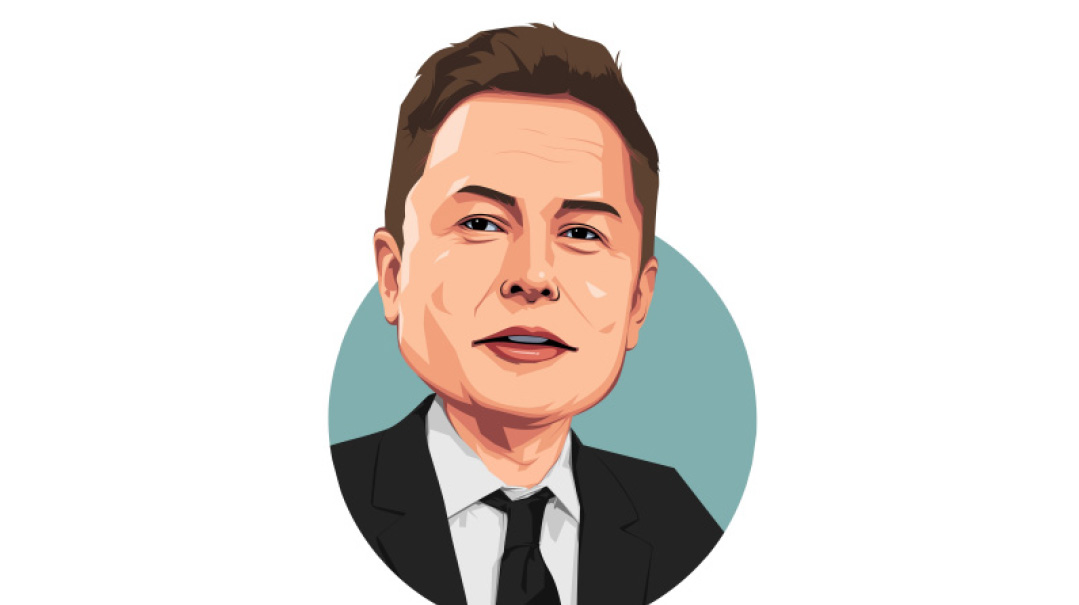Political Half-Lives

Fortunately, the US vetoed the Security Council resolution for a cease-fire in Gaza, and the IDF operation is still underway

Missed You, UN

After several years of brooding in the background, the United Nations has once again seized the spotlight in the aftermath of October 7. Unfortunately, it’s the same tired old act. Last week was tumultuous for relations between the UN and Israel. Foreign Minister Eli Cohen revoked the visa of the United Nations Humanitarian Coordinator for failing to condemn the Hamas massacre.
Meanwhile, UN secretary-general Antonio Guterres demanded a cease-fire in the war on Hamas, to avoid a “humanitarian catastrophe.” Israel’s UN ambassador Gilad Erdan pointed out that Guterres didn’t seem overly concerned about the humanitarian catastrophe caused by Hamas. In response, Guterres took a page from the American university president playbook and said massacres should be viewed “in context.”
Fortunately, the US vetoed the Security Council resolution for a cease-fire in Gaza, and the IDF operation is still underway.
Dodging a Knockout

With the world’s attention focused on Gaza, no one seems to have noticed that Ukraine has hit a low point. President Volodymyr Zelensky is facing challenges both foreign and domestic. On one hand, Republicans in the US Senate blocked a bill earmarking $60 billion in aid for Ukraine in its war against Russia. On the other, Kyiv’s mayor, former boxing champion Vitali Klitschko, broke 21 months of silence and unleashed criticism against Zelensky.
“At some point, we will no longer be any different from Russia, where everything depends on the whim of one man,” Klitschko declared, hitting the president right where it hurts.
Klitschko was unclear about what autocratic tendencies Zelensky was showing. But he saw his opening to make attack in the wake of Ukraine’s stalled counteroffensive against Russian forces. Kyiv’s commander in chief of the armed forces, Valery Zaluzhny, said a month ago that the war had reached a “stalemate,” and there are growing fears that Ukraine could lose.
For now, Zelensky has not responded and is focusing his efforts on appealing to the world for more military aid. Considering Klitschko’s glorious past in the ring, it might be wise to avoid a direct confrontation with him.
Pushing the Limits

Venezuelan dictator Nicolás Maduro, successor to Hugo Chávez, has revived a long-dormant dispute with the neighboring country of Guyana. He is pressing an old claim to the territory Caracas calls “Essequibo” — which happens to constitute the majority of Guyana’s land mass. Guyana took control of the territory under an 1899 treaty. The dictator began mobilizing troops to back up his threats.
Maduro is engaging in nationalist chest-thumping, but knowledgeable observers understand his true motives: the discovery of oil in the area, and his regime’s declining popularity. Maduro clearly hopes a flag-waving military operation will buy him support from his bedraggled populace, but his moves haven’t been well-received by another Latin American leftist leader: Brazil’s President Lula da Silva, who mobilized his own troops to the border with Venezuela. It seems that even ideological alignment has its limits.
Walls Closing In
President Joe Biden had a rough week last week. First, a Republican-led House committee revealed that Biden had used multiple email aliases to communicate with his son Hunter’s former business partner. The emails showed a pattern of being sent around the times Biden was traveling to Ukraine on official business as vice president. The revelation fueled GOP talk of initiating impeachment proceedings against the president.
Then, Hunter was indicted in California by the US Justice Department for nine counts of tax evasion. The charges, totaling $1.4 million in unpaid taxes, include three felonies and six misdemeanors, and follow the collapse of a plea deal. If convicted, Hunter could face 17 years in prison.
Coming on the heels of polls that show him losing a 2024 rematch with Donald Trump (see below on this page), Biden and his supporters look like they’ll need to rely on his opponent defeating himself.
Fighting His Way Back

Elon Musk, owner of the X social media platform and the world’s richest man, is trying to claw his way back to respectability after a tweet widely seen as anti-Semitic. Several major companies — among them Disney, Apple, and IBM — paused their advertising on X as the controversy flared.
Musk first apologized, tweeting, “Of the 30,000 [tweets], it might be literally the worst and dumbest post I’ve ever done.... I think it’ll be obvious that, in fact, far from being antisemitic, I’m in fact philosemitic.” That won him support from various Jewish personalities. Then he traveled to Israel and toured the Gaza Envelope with Israel’s Prime Minister Binyamin Netanyahu.
On the heels of that helpful PR, Musk went on the offensive, demanding the resignation of Disney CEO Bob Iger, declaring that “no one can blackmail me with money,” and charging that, in reality, Disney advertises on other platforms hosting at least as much anti-Semitic content as X.
In Search of Eternity

To no one’s surprise, President Vladimir Putin confirmed he will seek reelection in 2024. The Russian leader, 71, made the announcement during commemorations for soldiers fighting in Ukraine. Soldier Artyom Zhoga, upon being decorated with the prestigious “Hero of Russia Gold Star,” asked Putin to compete in the elections.
Not one to dilly-dally, the former KGB chief said, “I will run for the post of president. I will not hide that I have had different thoughts at different times, but it is now time to make a decision.”
Dictator Joseph Stalin ruled the Soviet Union for 29 years. One might have thought that the advent of democracy in Russia would bring a rate of executive turnover similar to that in Western countries. But Putin has been Russia’s supreme leader since 1999, and if he wins reelection next year (probably a safe assumption), his next term will carry him to 2030, eclipsing Uncle Joe’s tenure.
4%
Donald Trump’s hypothetical margin of victory over Joe Biden, according to the latest Wall Street Journal poll. The results showed Trump beating Biden 47% to 43% if the election were held today. The gap widens to 6% when other contenders, like Robert F. Kennedy Jr., are thrown into the mix.
The same poll shows Biden’s personal approval rating at an all-time low of 37%, and a whopping 61% view him unfavorably. Another finding that bodes ill for him is that people overall still hold fond memories of Trump, but hold Biden responsible for their current ills. About half of voters say Trump’s policies helped them, with 37% saying they were hurt. For Biden, the split is upside-down: Only 23% say Biden has helped them, while 53% say they’ve been hurt.
Despite the constant media drumbeat against Trump since his 2016 election — and his own foibles — it seems the American public nevertheless holds him in higher regard than they do Biden. The incumbent has eleven months to turn things around — but it will be an uphill climb.
(Originally featured in Mishpacha, Issue 990)
Oops! We could not locate your form.






